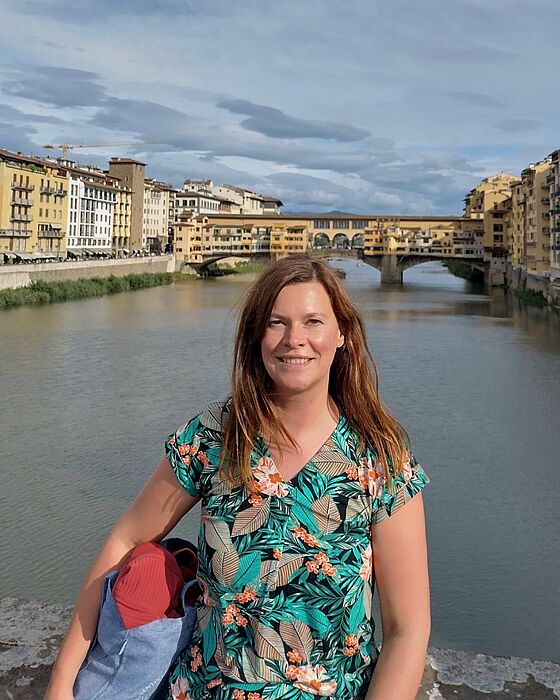Christina Kolb, now Assistant Professor of Cyber Security and Resilience at the University of Twente in the Netherlands, talks about her career path from a mathematics student to a researcher in the field of cyber security. She emphasises how versatile a mathematics degree can be and how it opened the door to various scientific fields.
After studying maths in Oldenburg, where she completed her Master's degree with a focus on life sciences, Kolb discovered her passion for number theory and cryptography. This field, which is closely linked to security issues in computer science, led her to begin a doctoral programme in cryptography. However, her path was not fixed from the outset: "I first worked in cryptography for two years and then decided to do a PhD on the topic of competitive routing in hybrid communication systems," she explains, as she realised that her passion for the subject area was more evident there. This flexibility and the courage to pursue new directions, even during her studies or doctorate, is something she would like to pass on to current students at Paderborn University.
The value of interdisciplinarity and networks
During her time at Paderborn University, Christina Kolb discovered the benefits of interdisciplinary collaboration. By participating in research projects, such as the Collaborative Research Centre 901 - On-The-Fly Computing, she worked with colleagues from various disciplines, from mathematics to computer science to economics. "It was an incredibly enriching experience to work with people from so many different fields," she says. This collaboration opened up new perspectives for her and sponsored her professional development.
In addition to research, Kolb also considers networking to be a decisive factor for professional success. She emphasises that it is important to establish networks during your studies - be it through internships, workshops or mentoring programmes. She herself has benefited enormously from a mentoring programme for doctoral students, which has not only helped her professionally, but also personally.
The path to a professorship
After completing her doctorate, Christina Kolb applied for an advertised postdoctoral position at the University of Twente, where she conducted research in the Computer Science Theory group on "Safety and Security Interactions in Formal Methods". There she gained her first international experience and learnt about new approaches to research and communication in international teams. She then went to the University of Edinburgh as a postdoc, where she conducted research in the Cyber Security and Privacy group until she applied for the current professorship.
Work-life balance and personal development
Another aspect that Christina Kolb emphasises is the balance between work and private life. "Work-life balance is totally important," she emphasises and encourages students to make time for hobbies and relaxation. She talks about her own experience of how important it is to exercise regularly or take part in social activities in order to clear your head and recharge your batteries. She refers to the numerous programmes offered by Paderborn University and the city itself.
Career planning: step by step
Kolb has a clear piece of advice for students who are thinking about their professional future: "You don't have to know exactly where you want to go right from the start." Instead, she recommends proceeding step by step after graduation, keeping an open mind and gaining new experiences. Whether in industry or at university - both paths offer numerous opportunities for further development.
Final words to students
Christina Kolb's career path shows that it is often not the straightforward decisions that lead to success, but the courage to try out new paths and remain flexible. She encourages students to take advantage of the many opportunities offered by the university - from networking opportunities and interdisciplinary projects to international experiences - and to always remain curious. "The most important thing is to try things out and not commit too early. There are so many paths you can take after graduation," she says.

